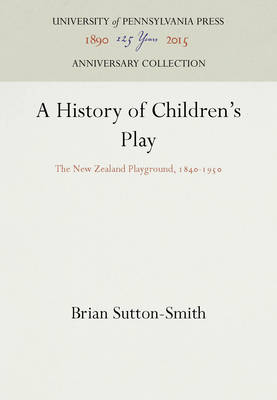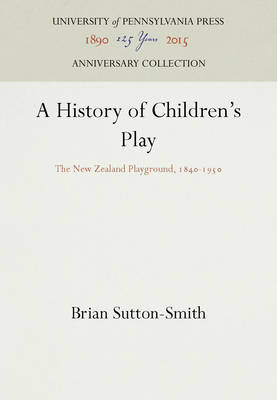
- Afhalen na 1 uur in een winkel met voorraad
- Gratis thuislevering in België vanaf € 30
- Ruim aanbod met 7 miljoen producten
- Afhalen na 1 uur in een winkel met voorraad
- Gratis thuislevering in België vanaf € 30
- Ruim aanbod met 7 miljoen producten
Zoeken
€ 136,95
+ 273 punten
Omschrijving
New Zealand children from 1840 to 1890 were subjected to an unusual combination of agrarian existence and an industrial social philosophy in the newly formed schools. When schools became more universal in the expanding industrial society, a new emphasis on the control of children developed, and from 1920 onward, adult supervision in the form of heavily organized sports and playgrounds encroached more and more on the untrammeled freedom of the rural environment.
Returning to his home country of New Zealand, Brian Sutton-Smith documents the relationship between children's play and the actual process of history. Drawing on interviews with hundreds of informants from every province and school district of New Zealand, the author illuminates for the first time the various social, cultural, historical, and psychological context in which children's play occurs. He treats both formal and informal play, as well as the play of both boys and girls.Specificaties
Betrokkenen
- Auteur(s):
- Uitgeverij:
Inhoud
- Aantal bladzijden:
- 352
- Taal:
- Engels
- Reeks:
Eigenschappen
- Productcode (EAN):
- 9780812278088
- Verschijningsdatum:
- 29/01/1981
- Uitvoering:
- Hardcover
- Formaat:
- Genaaid
- Afmetingen:
- 156 mm x 234 mm
- Gewicht:
- 662 g

Alleen bij Standaard Boekhandel
+ 273 punten op je klantenkaart van Standaard Boekhandel
Beoordelingen
We publiceren alleen reviews die voldoen aan de voorwaarden voor reviews. Bekijk onze voorwaarden voor reviews.












